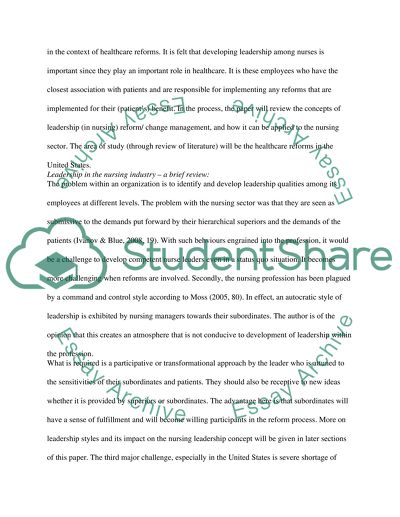Cite this document
(“The value of nursing leadership to healthcare reform Scholarship Essay”, n.d.)
Retrieved from https://studentshare.org/other/1424914-the-value-of-nursing-leadership-to-healthcare
Retrieved from https://studentshare.org/other/1424914-the-value-of-nursing-leadership-to-healthcare
(The Value of Nursing Leadership to Healthcare Reform Scholarship Essay)
https://studentshare.org/other/1424914-the-value-of-nursing-leadership-to-healthcare.
https://studentshare.org/other/1424914-the-value-of-nursing-leadership-to-healthcare.
“The Value of Nursing Leadership to Healthcare Reform Scholarship Essay”, n.d. https://studentshare.org/other/1424914-the-value-of-nursing-leadership-to-healthcare.


